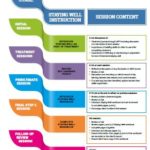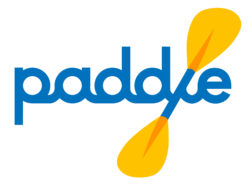A common theme at the A&D Network’s Patient and Public Forum has been patients’ anxiety around coping on their own once discharged. It was generally felt that not enough attention was given to preparing patients for staying well once treatment had finished, especially at ‘step 2’ treatment.
The Patient and Public Forum initiated two pilot studies, aimed at better understanding how well patients do after discharge from treatment in terms of maintaining their clinical gains. These studies have to be understood within the context of a very small sample size, but this work has been invaluable in agreeing the network’s work programme going forward which now has a focus on relapse prevention.
Read short reports on these pilots here:
With some 30% of patients seeking additional support in the first six months following discharge, and many patients reporting having difficulty in getting themselves organised to work at staying well following treatment coming to an end, the A&D Network decided to embark on two projects aimed at addressing these issues:
1/ Our therapy support app ‘Paddle’
This has been developed in close partnership with the network’s Patient and Public Forum, an extended stakeholder group, the app developers Global Initiative and an expert reference group.
The network is grateful to the Oxford AHSN, the NIHR Oxford CLAHRC and Global Initiative for contributing to the funding of this project.
Paddle is a means of keeping information and key learning from therapy sessions, work booklets and other related therapy resources all together in an organised fashion and ensuring that this important resource is more readily accessible (i.e. via a smartphone) once therapy ends.
The overarching vision is that patients will download and use the app both during and after treatment to help them to:
- get the most out of their treatment by storing and organising treatment-related information in a secure location
- continue to use the skills learned during therapy and other related resources once discharged, in order to stay well for longer.
Piloting and evaluation activity start in October 2019 and full roll-out across the Oxford AHSN region is planned for early 2020. Paddle will only accessible only within the Thames Valley and Milton Keynes initially and by invitation. Further details to follow.
2/ A new, integrated Staying Well protocol
 This has been developed for step 2 staff (psychological wellbeing practitioners) by staff from all network member organisations. The protocol states clearly what needs to be covered when to help prepare the patient for staying well following treatment. A new Staying Well workbook has been designed alongside it (based on best practice across the country and evidence-informed) where the patient can keep notes on staying well after discharge. Like the Paddle app this will also be piloted and evaluated October 2019-March 2020.
This has been developed for step 2 staff (psychological wellbeing practitioners) by staff from all network member organisations. The protocol states clearly what needs to be covered when to help prepare the patient for staying well following treatment. A new Staying Well workbook has been designed alongside it (based on best practice across the country and evidence-informed) where the patient can keep notes on staying well after discharge. Like the Paddle app this will also be piloted and evaluated October 2019-March 2020.
Subject to funding, the planned next phase of this project will focus on developing ‘patient follow-up’ functionality to contribute to a longer term exploration of patients’ ability to stay well after discharge and to a better understanding of those patients who are at higher risk of relapse.


